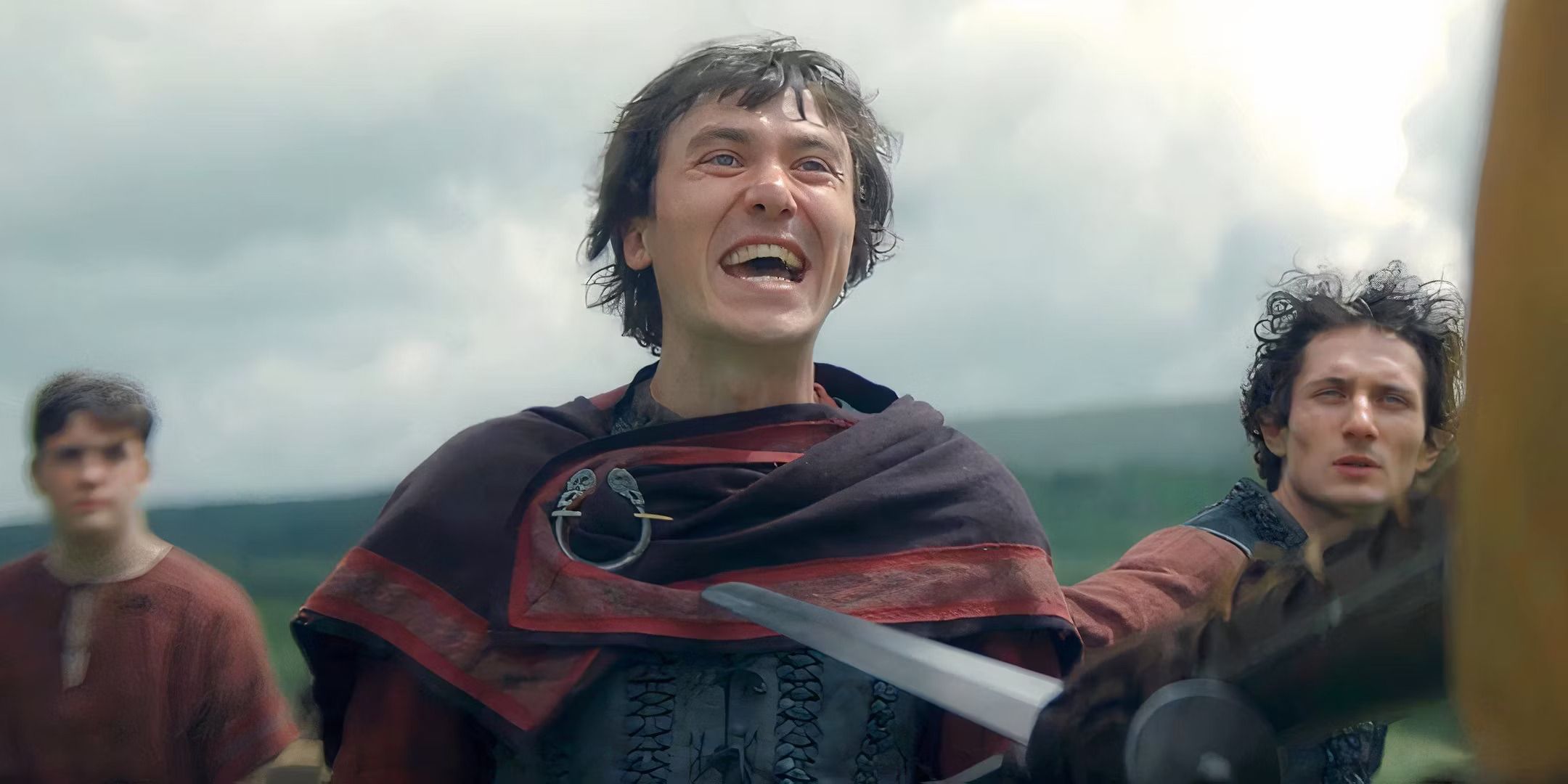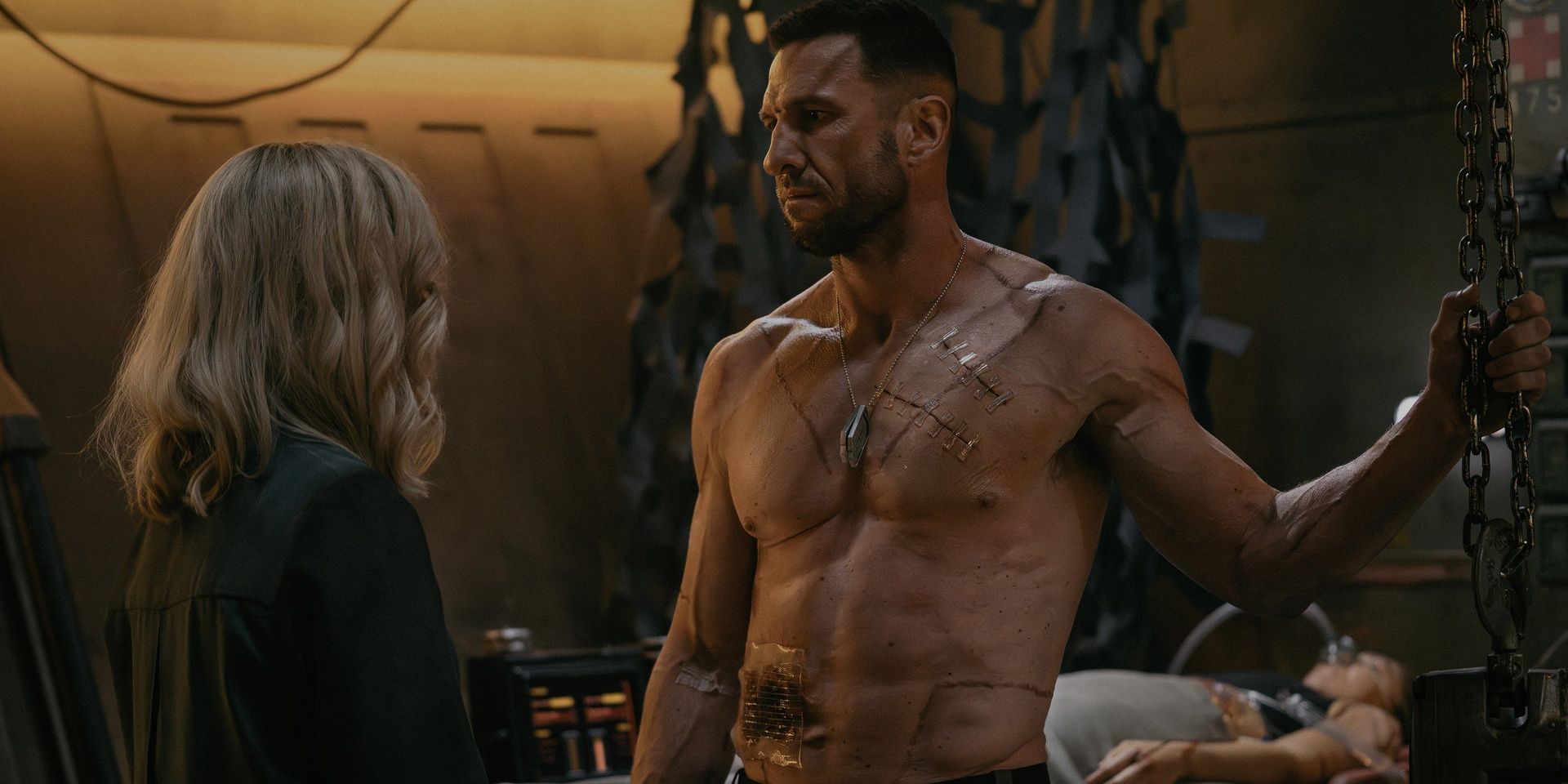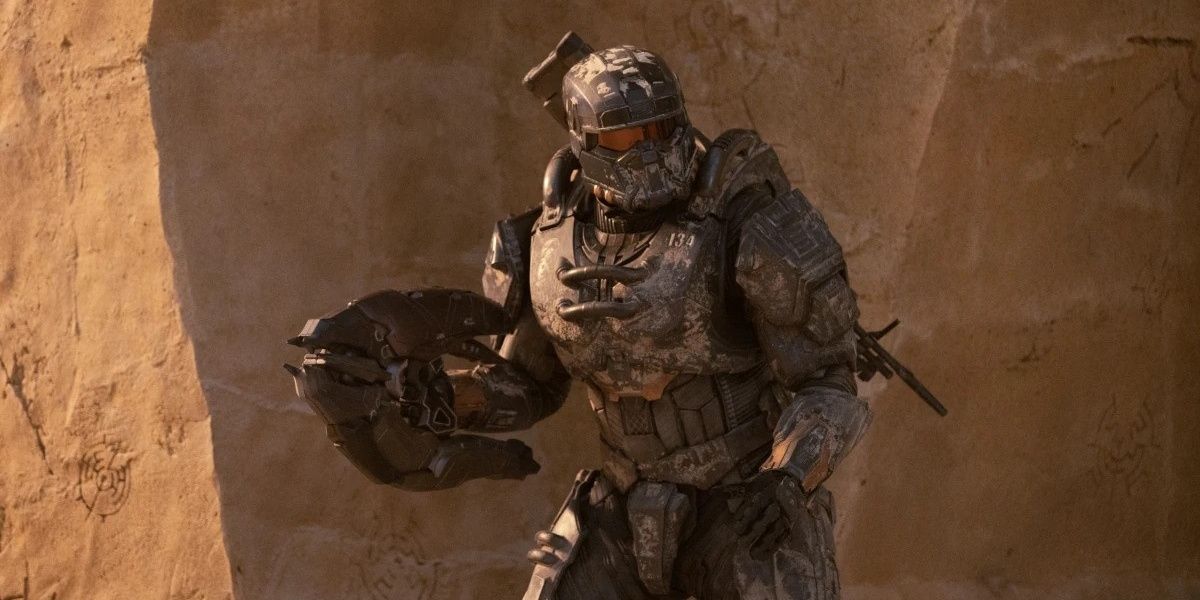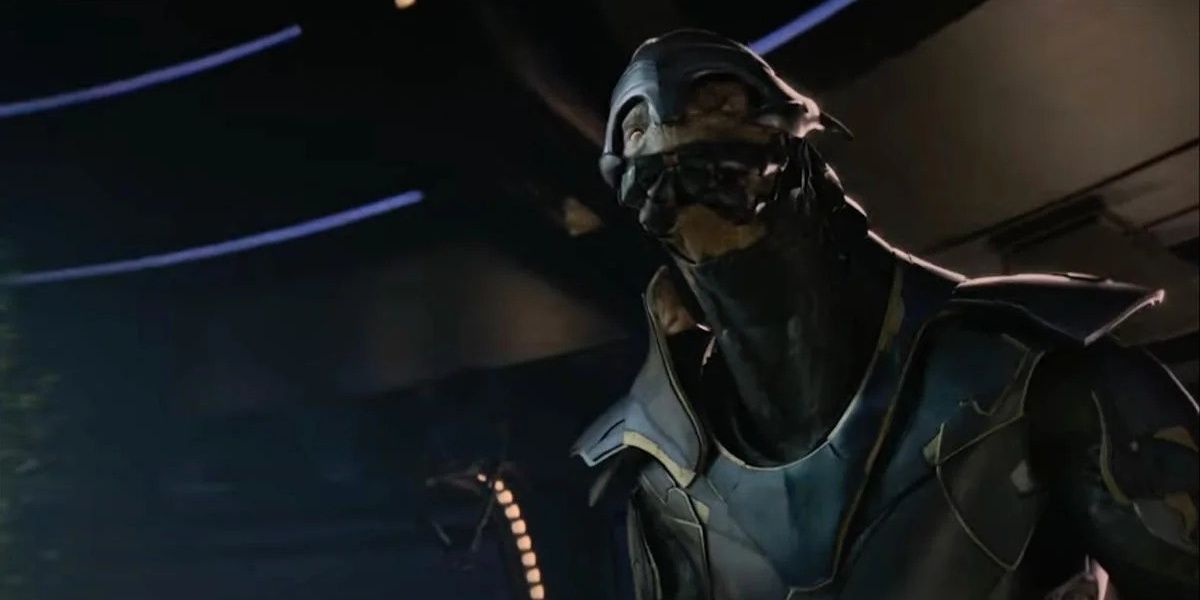Halo season 2 struggles under the weight of its central narrative theme. Separating the Master Chief's military hero identity from John's traumatized war orphan backstory is a solid concept, but it almost asks too much of the series. John looks to the showrunners and asks for a second personality trait, and they repeatedly offer him new reasons to fall back into old habits. Some of the other characters earn better treatment from this emotional episode.
"Aleria" is the first of two episodes directed by Otto Bathurst. Bathurst's only film credit is in the hilarious 2018 Robin Hood adaptation starring Taron Egerton. He's earned considerably more respect for his small-screen efforts. Bathurst directed "The National Anthem," the iconic 2011 series premiere of Black Mirror. He won a BAFTA in 2014 for directing three episodes of Peaky Blinders. His work varies wildly, but some of his accomplishments are inarguably grand.
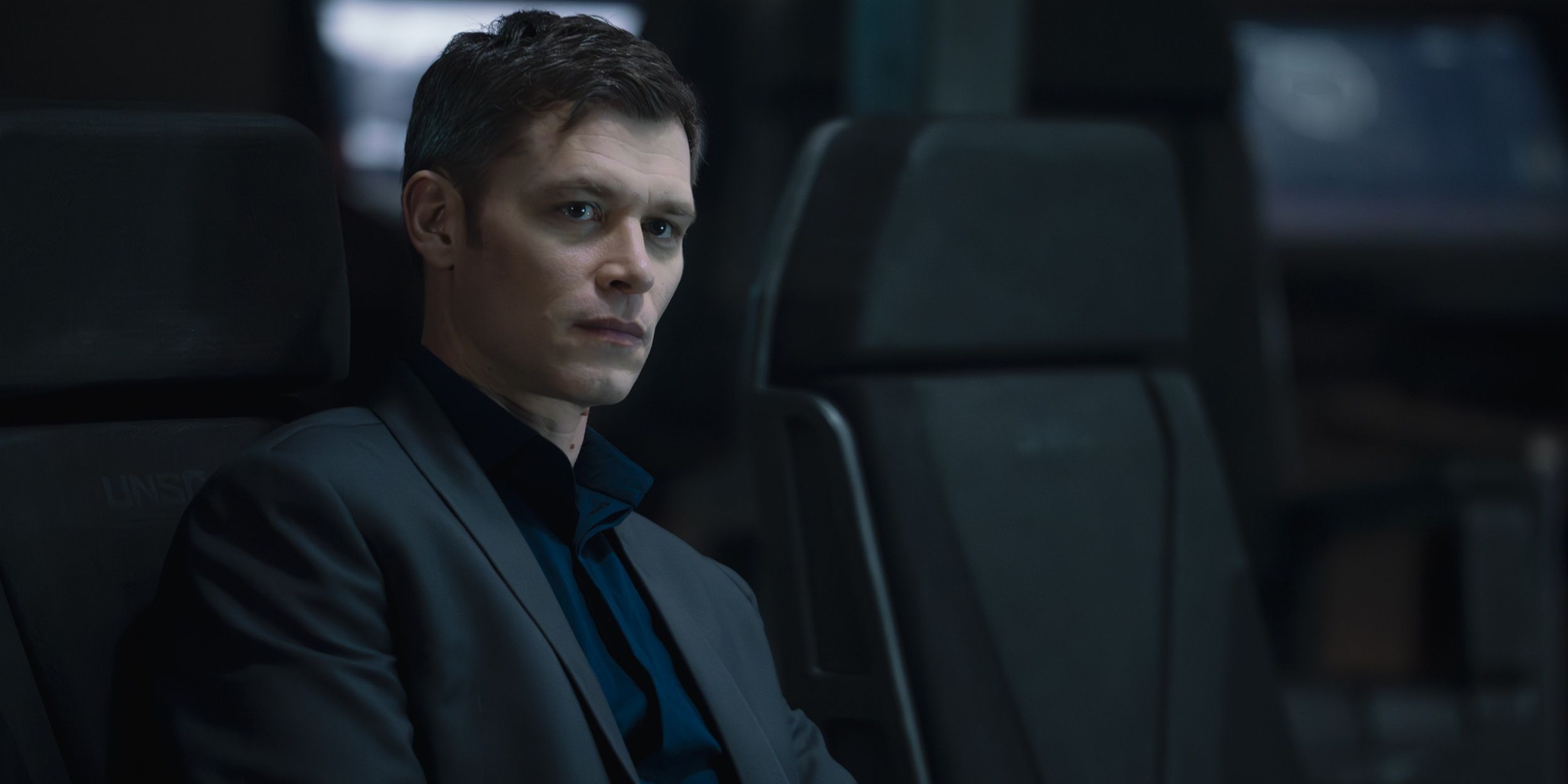
Halo Season 2: Who is James Ackerson?
With Catherine Halsey mostly out of the picture, the Halo show needs a new shadowy figure to lead Master Chief astray.
One of the problems with video game adaptations is the protagonist's role. The hero of a bestselling game need only serve as an avatar for the player. Their personalities, struggles, and inner voices are secondary to their capacity for fun gameplay. John-117 speaks in short, practical sentences. He conveys little beyond his role as a soldier. Though the novels flesh out endless unique and engaging corners of the Halo universe, they paradoxically render the Master Chief even less complicated. He's a biological automaton, at his happiest when he's mindlessly following the orders of his superior and ending alien lives at a nightmarish rate. The Halo show has to give him more than that. John spends most of "Aleria" mourning the loss of his ally, Vannak-134. The episode opens with the ending of the battle for Reach. Having already soundly lost, John, Soren, and Halsey enjoy an unexpected rescue from Kwan Ha and Soren's wife, Laera. As Riz drags Vannak's corpse, she suffers a second near-fatal injury. The heroes pile into Soren's ship and make for the titular scrapyard planet, Aleria.
As usual, Halo is dragged between multiple narrative threads of varying strength. Riz enjoys a standout example. She spent most of the second and third episodes recovering from her season one injury. It raised an engaging question. What does a Spartan do when fighting is no longer an option? How does a person robbed of their emotions and hardened into a weapon continue their life with their body ruined and feelings restored? Riz's recovery journey is over. Her second critical wound seems to have ended her career. She isn't a mirror to the Master Chief. Instead, she offers him a way out. John sets aside any questions he has about his place in the universe, resolving to return to his silent, unquestioning super soldier persona and bury himself behind his armor until he's avenged his friend. It's an understandable trauma response for a man who knows no other way. Riz doesn't find the death of another Silver Team member particularly motivating. Her final words to John before she sets down her dog tags are among the series' most moving.
Soren is back in his element, carrying B-plots hundreds of miles from the central narrative. It was truly shameful to see him botch any cathartic emotional impact he could have had with Catherine Halsey, but he's more comfortable doing his own thing. Soren reunites with Laera and travels to Aleria, where they find a new crisis. Their son, Kessler, is missing. Soren and Laera must track down every lead to find their lost kid, prodding open wounds in their relationship dynamic and allowing both to shine. Laera learns that the UNSC took Kessler, setting up a potential new narrative thread. The show struggles to condemn the actions of the ONI and UNSC since it gave the universe most of the central characters. Watching Soren drag his kid away from the program that ruined his life as a mirror for his ability to save himself could be a fascinating escalation of his limited traits.
The central question of "Aleria" is what a soldier does after a crushing defeat. Reach has fallen off-screen, Vannak is dead, and Riz can no longer fight. While the heroes struggle under the weight of their failure, the villains discuss a new path forward. Episode 5 names the Arbiter, a Covenant Elite rank given to warriors who've failed a significant mission. The show's Arbiter, Var 'Gatanai, is hardly a character. He's another big, strong enemy for the Master Chief to fight. His connection to Makee only adds to the episode's oddly prolonged runtime. There's little recognizably human emotion in their boardroom negotiations, rendering the fanservice reveal a bit weak.
"Aleria" is a mixed bag among Halo season 2's episodes. There's a moving emotional core consistently buried under the necessity to return to underwhelming action. Very few narrative threads can build to anything engaging when every detail must eventually feed into another mess of explosions and laser blasts. "Reach" abandoned a lot of the goodwill the first few episodes crafted and set a timer for the next dull explosion. It's hard to invest anything into a show that will always set its characters aside to fight and die as readily as the military leaders it widely disrespects.
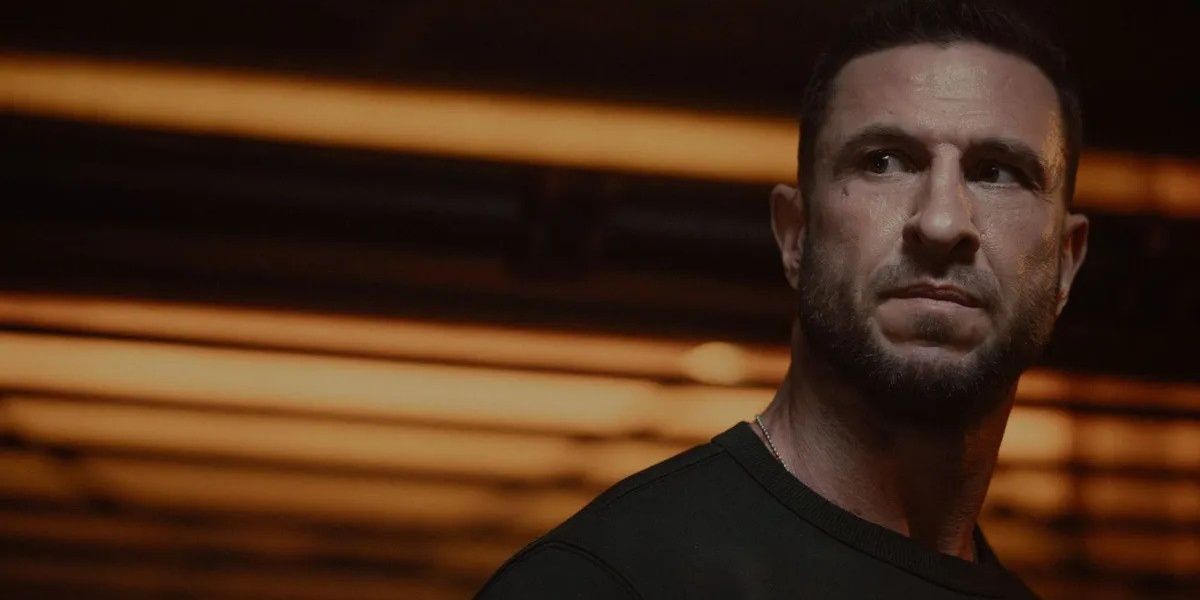
Halo Season 2 Episode 4 Review
This episode-length battle scene will delight some fans of the franchise and infuriate those who saw the upsides of this show.

